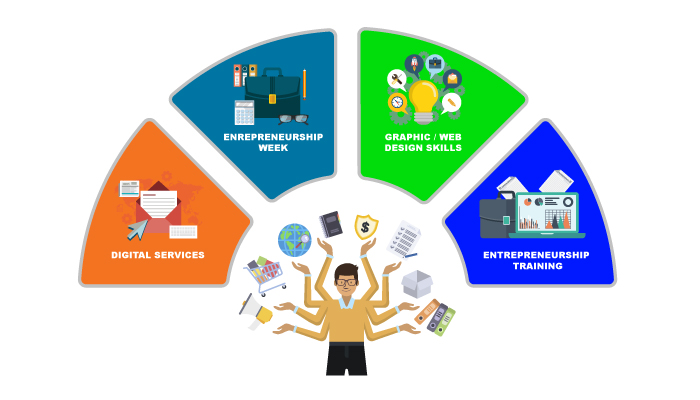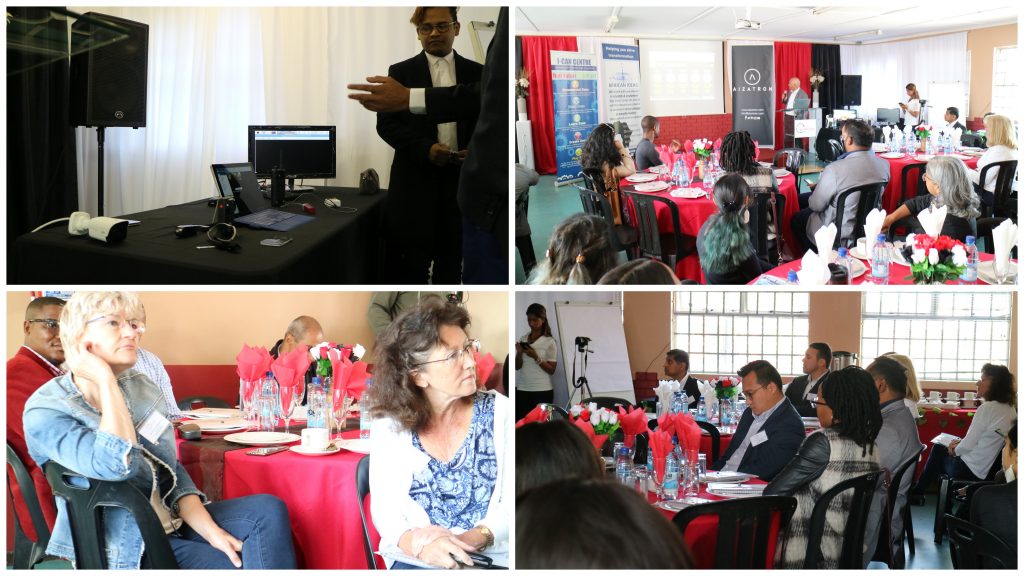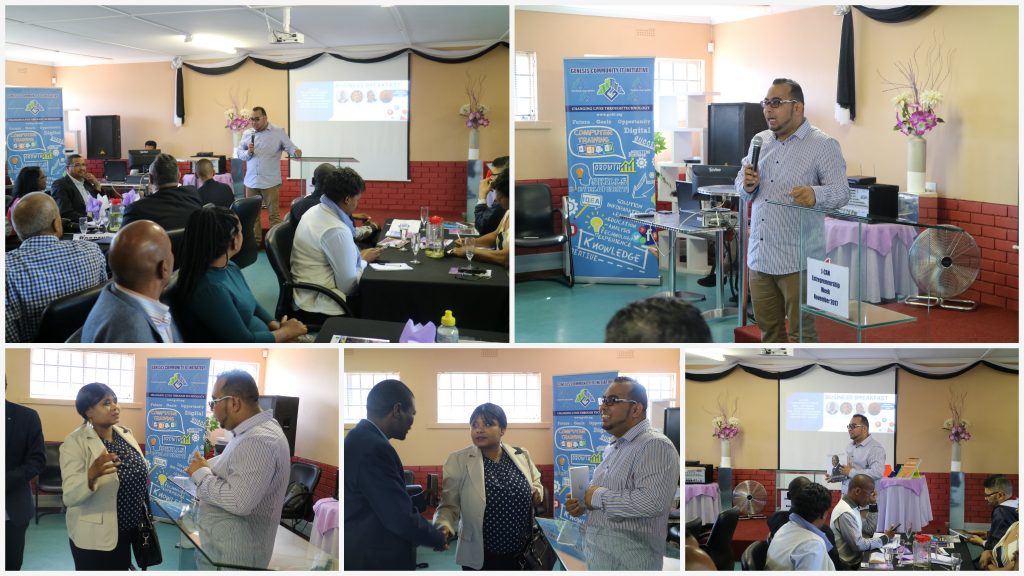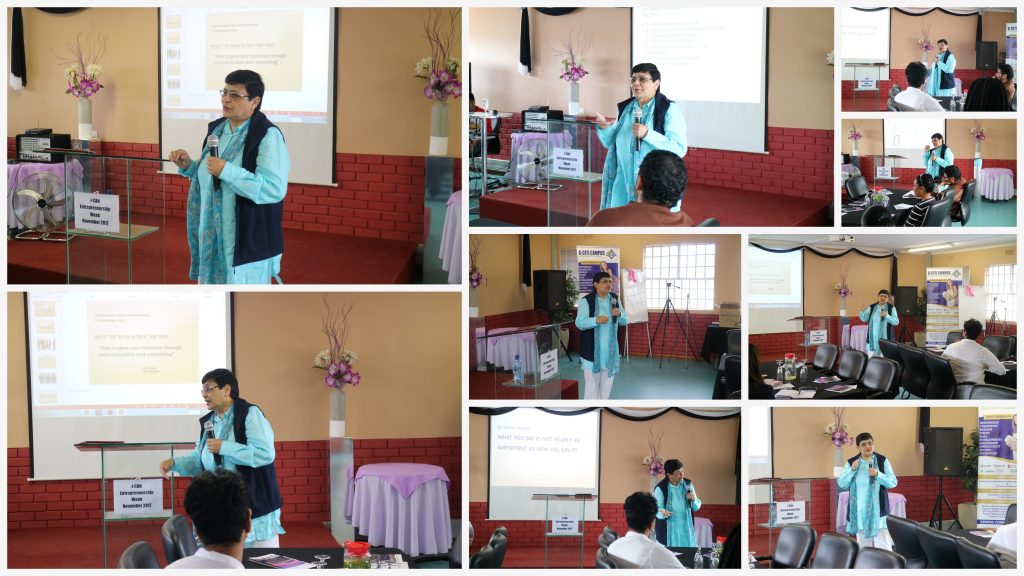
The vital importance and positive contribution of entrepreneurship and an entrepreneurial culture in economic and social development cannot be overstated. Entrepreneurs create and bring to life new technologies, products and services, and create new markets and jobs along the way. Entrepreneurs are smart risk takers, implementers, rule-breakers; or in a word: innovators. And like any emerging economy aiming to move ahead, South Africa need lots of them! Transforming ideas into economic opportunities is the crux of entrepreneurship. History shows that economic progress has been significantly advanced by pragmatic people who are entrepreneurial and innovative, able to exploit opportunities and willing to take risks. Entrepreneurs produce solutions that fly in the face of established knowledge, and they always challenge the status quo.

The small to medium enterprise (SME) is the lifeblood of the economy in South Africa. In Brazil,more than 16 million small to micro enterprises make up around 20% of the country’s gross domestic product (GDP). In India, 26 million SMEs make up around 8% of the country’s GDP. And in Germany, the small to mid-sized business is not just the foundation of the country’s economic success, but the benchmark for global success stories. South Africa has, according to the report ‘Small Businesses in India, Brazil and South Africa: Basic Characteristics’, far less red tape than Brazil and yet that country manages to produce SMEs at double the rate. This is a concern as the SME is critical to strengthening the foundations of the beleaguered economy.

Fortunately, there is an increasing number of South African enterprises that have recognised this need and are working together to create a more fertile operational landscape for the SME, but many struggle due to lack of resources and capacity.
Genesis discovered that with empowerment of digital skills; citizens become innovative and creative in starting their own businesses. Most self-employed citizens are struggling on a day-to-day basis to grow their business. They are faced with compliance issues and access funding. As most businesses thrive online, entrepreneurs need to position themselves in a digital world to be successful. Many self-employed & potential business startups fail to grow their businesses due to lack of entrepreneurial thinking and business skills.While unemployment remains low, experts see a widening talent gap, with many who are entering the workforce lacking the core job skills that hiring managers are looking for.

Today, the educational nonprofit, NFTE (Network for Teaching Entrepreneurship) released new research which shows significant benefits of youth entrepreneurship education, including development of the types of skills that employers value most.
The findings are detailed in a new whitepaper entitled Measuring Entrepreneurial Mindset in Youth. Technological advances, automation, artificial intelligence, a growing gig economy, and disruptive new business models are all driving profound changes in the workplace. Many familiar career paths are disappearing. But in uncertain times, entrepreneurial thinking – including noncognitive skills such as the ability to take initiative, adjust to challenges, think critically, solve problems, communicate effectively, and collaborate – is increasingly valued. Entrepreneurial thinking has become a mantra for many programs and initiatives that aim to prepare young people for the future. This is because entrepreneurial skills—like the ability to take initiative and think on your feet, critically solve problems, and communicate effectively—are increasingly viewed as essential for career success.

But how do we know whether young people are acquiring these skills? Until now, there has been little research to guide efforts to assess entrepreneurial thinking in youth. Increasingly, the global economy demands that young people enter the workforce not only with a college degree, but also with a set of transferrable, entrepreneurial skills and attitudes that can help them succeed in almost any job or industry. This includes the ability to take initiative and think on your feet, to critically solve problems, and to communicate effectively. Learning these and other skills that are part of the entrepreneurial mindset is central to becoming career-ready. As a result, entrepreneurial thinking has become the mantra for many organizations interested in preparing youth for the future.
Projects Implemented
Digital Services
Entrepreneurship Week
Graphic / Web Design Skills
Entrepreneurship Training